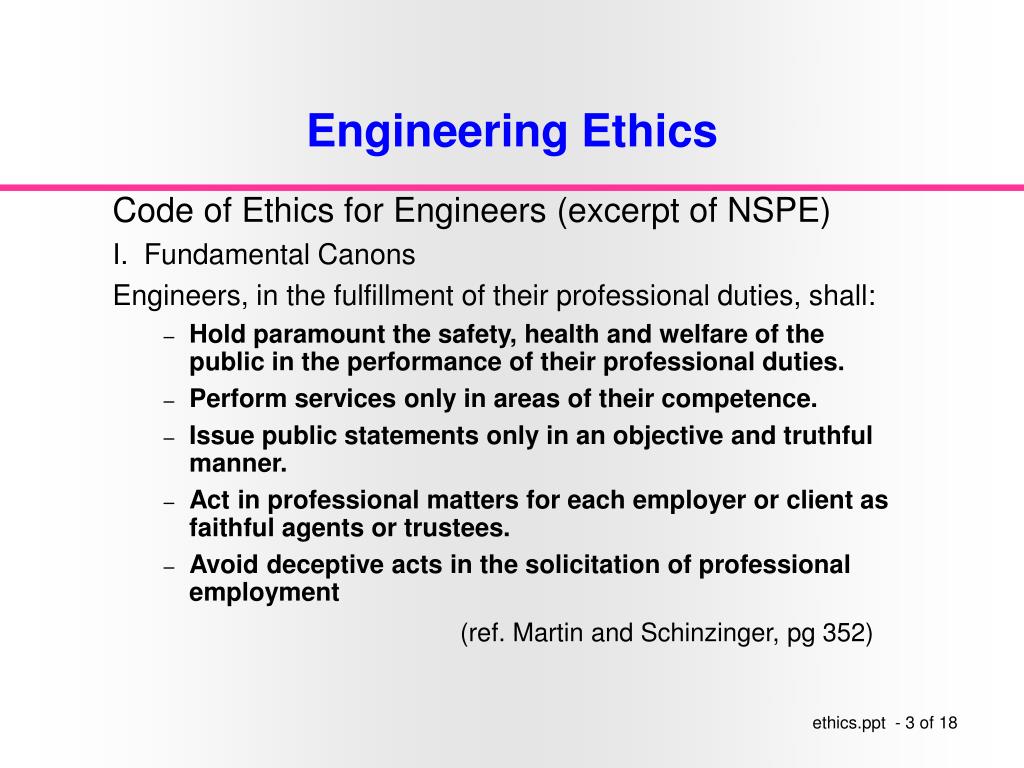The Ethics Of Professional Conduct In Civil Engineering

Greetings fam! Today we're gonna talk about engineering ethics and case studies. Now, I know a lot of you may be thinking, "what does engineering ethics have to do with us?" Well, the thing is, engineering ethics affects us all every day, whether we realize it or not. So, let's dive in and explore this topic a bit further.
What are Engineering Ethics?
Engineering ethics are the moral principles and values that engineers are expected to follow for the benefit of society, their employers, and themselves. These ethics ensure that engineers are held accountable for their actions and decisions, and strive to do what is best for the greater good.
Why are Engineering Ethics Important?
Engineering ethics ensure that engineers are responsible for their actions and decisions, which helps to prevent harm to society and the environment. They also promote trust in the engineering profession and ensure that engineers are held to the highest standards of conduct.
Case Studies
Now, let's dive into some case studies that demonstrate the importance of engineering ethics.
The Challenger Disaster
In 1986, the Space Shuttle Challenger exploded shortly after takeoff, killing all seven crew members on board. The cause of the disaster was traced back to a failure in the O-ring joints, which were designed and produced by Morton Thiokol. Engineers at Morton Thiokol had warned their superiors about the potential failure of the O-rings in cold weather, but their warnings were ignored. Ultimately, the failure of the O-rings was determined to be a result of poor engineering ethics and lack of communication between engineers and management.
The Ford Pinto
In the early 1970s, Ford produced the Pinto, a compact car designed for fuel efficiency. However, the Pinto was soon found to have a major design flaw - the gas tank was positioned in a way that made it extremely vulnerable to rupturing in rear-end collisions. This flaw led to a number of deaths and injuries, and Ford was sued for negligence. The case exposed the flaws in Ford's engineering ethics and the prioritization of profits over safety.
Frequently Asked Questions
What happens when engineers don't follow ethical principles?
When engineers don't follow ethical principles, it can have devastating consequences for society and the environment. This can lead to accidents, injuries, and deaths, as well as damage to the reputation of the engineering profession as a whole.
How can engineers ensure they are following ethical principles?
Engineers can ensure they are following ethical principles by staying up-to-date on the latest ethics guidelines and codes of conduct, seeking guidance from mentors and peers, and understanding the potential consequences of their actions and decisions.
What role does society play in engineering ethics?
Society plays an important role in engineering ethics by holding engineers accountable for their actions and advocating for ethical principles and values. This can include supporting regulations and standards that promote safety and environmental responsibility, as well as speaking out against unethical behavior.
What should I do if I witness unethical behavior in the engineering profession?
If you witness unethical behavior in the engineering profession, it is important to report it to the appropriate authorities or organizations. This can include your manager, human resources department, or professional engineering associations. You can also reach out to a trusted mentor or peer for guidance and support.
Conclusion
In conclusion, engineering ethics are an important part of the engineering profession that play a vital role in ensuring the safety and well-being of society and the environment. As engineers, it is our responsibility to prioritize ethics and conduct ourselves in a way that upholds the values of our profession. Let's continue to strive for excellence and make a positive impact on the world around us.


Post a Comment for "The Ethics Of Professional Conduct In Civil Engineering"